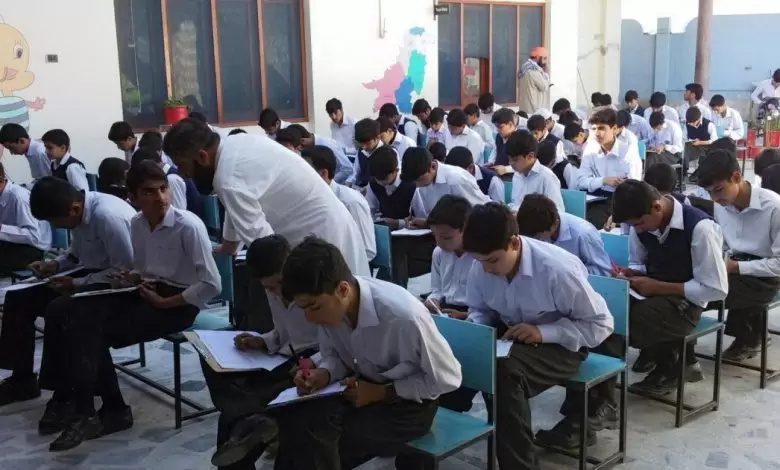
The Executive Director of the Inter-Boards Coordination Committee (IBCC), Professor Dr. Ghulam Ali Mallah, has announced that starting next year, the passing marks for matriculation and intermediate exams will be increased from 33% to 40%. Additionally, easier, rote-learning-based questions will be replaced with more challenging ones. However, the number of choice questions will be doubled from 7 to 14.
He stated that the educational framework is under revision, and it has been decided to grant grace marks to students in exams. In the coming days, all educational boards across Pakistan will present recommendations for fair and uniform evaluation of exam papers.
Dr. Ghulam Ali Mallah said, "We are working on reforms. A meeting was held in Skardu, where we presented recommendations that will soon be approved and implemented." He added that a two-day subcommittee meeting was held at the Karachi Secondary Education Board, where it was decided that all educational boards across the country will now be bound to award 7 passing marks. From the next academic year, these will be increased from 33 to 40. The format of open-choice exams will be changed to a closed-choice format, providing 100% options. If there are 7 questions, there will be a choice of 14.
Also Read: Hijama: The Ancient Practice of Cupping and Its Modern Relevance
He further explained that students often opt for easy, rote-based questions, which is unfair to those who attempt more challenging questions since the marks remain equal: "We are not eliminating the option of questions, but we have decided to increase the number of questions by giving a closed option. Each question will have two parts, but the questions will be knowledge-based. These recommendations aim to enhance students' academic capabilities so that they use their minds instead of rote memorization when solving questions. We will provide technology-based solutions to students."
The IBCC Executive Director also mentioned that there has been consideration of resolving discrepancies in marks for students transferring from one educational board to another by awarding average marks for any difference in course marks.
He noted that in Punjab and Khyber Pakhtunkhwa, Islamic Studies (Quranic Studies) is taught as an additional subject at matriculation and intermediate levels. As a result, the total marks have increased from 1100 to 1200, while in the Federal Board, Balochistan, and Sindh, it remains at 1100: "In Karachi, Quranic Studies is not a separate subject. We are bringing uniformity; if a student from Karachi moves to Punjab, average marks will be awarded."
The committee also discussed the new grading system and the implications of granting grace marks. The board meeting addressed both the Secondary School Certificate (SSC) and Higher Secondary School Certificate (HSSC) exam papers for Islamic Studies and Pakistan Studies.
He emphasized that there are 29 examination boards in Pakistan, each with different assessment methods, many of which require attention: "We are developing a National Assessment Framework in consultation with stakeholders. These recommendations have been sent to the heads of all educational boards across the country and will be presented for approval in the next meeting."
He mentioned that there is a strong possibility that the IBCC's meeting decisions will be implemented by December this year. The meeting focused on key issues related to the examination system, student evaluation, migration policies among educational boards, and national assessment standards.
Dr. Mallah said that the subcommittee's recommendations will be reviewed and approved at the next full IBCC forum meeting. He also emphasized the recent Memorandum of Understanding (MoU) between IBCC and the Pakistan Cricket Board (PCB), aimed at promoting cricket in schools and colleges.
This partnership is designed to nurture young talent at the grassroots level, making educational institutions a crucial nursery for future cricket stars.